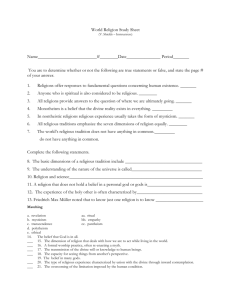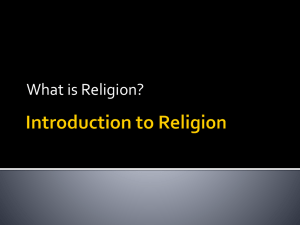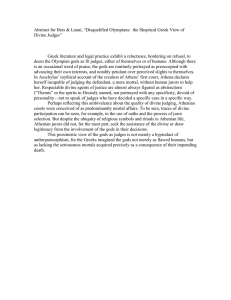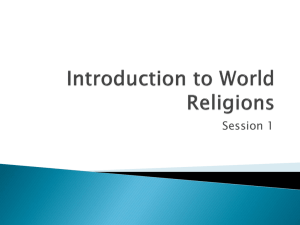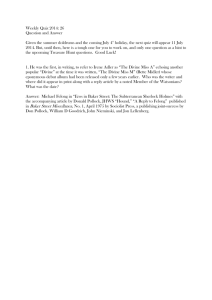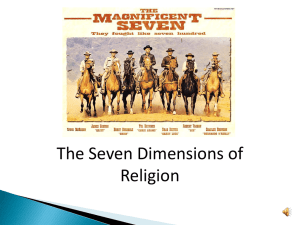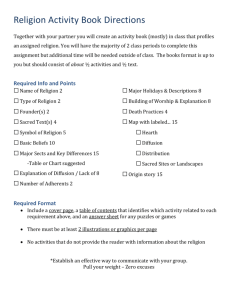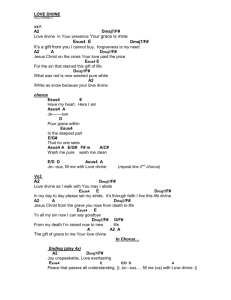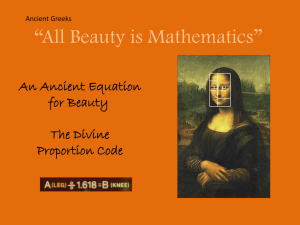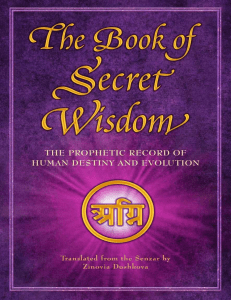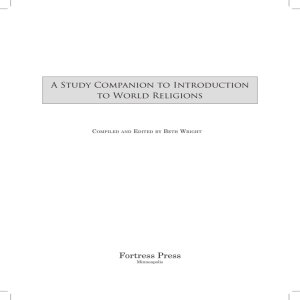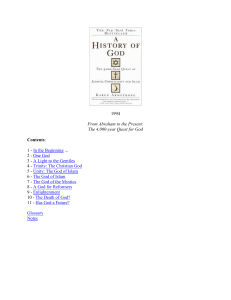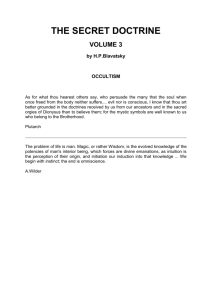hellenistic religions of the first century roman world
advertisement
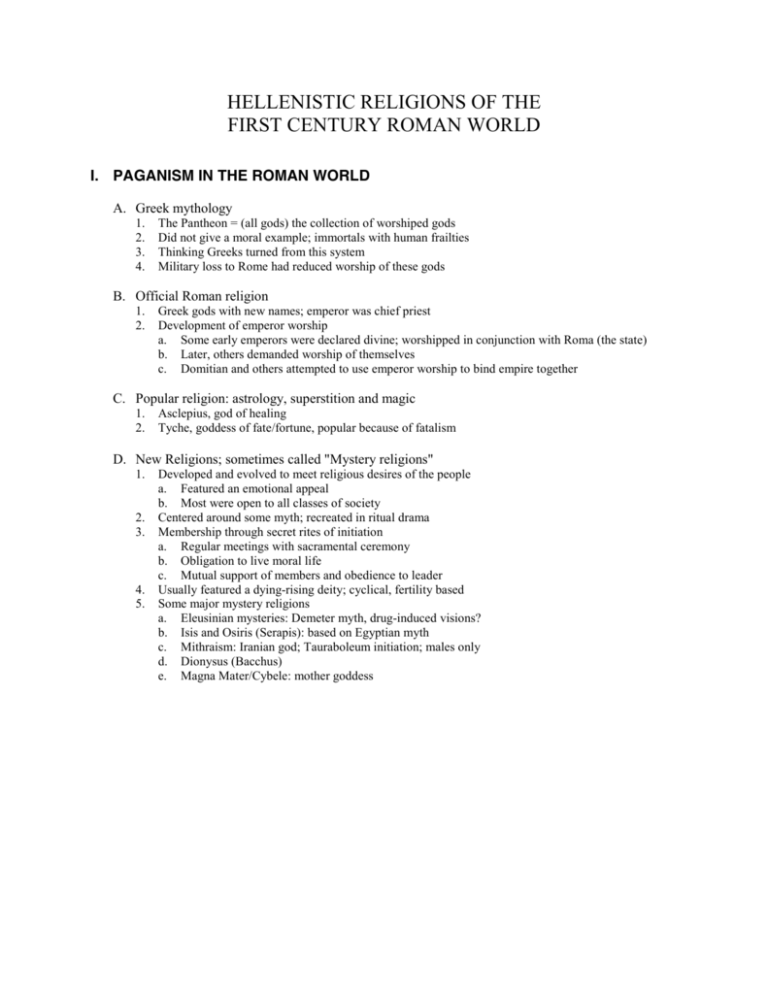
HELLENISTIC RELIGIONS OF THE
FIRST CENTURY ROMAN WORLD
!" #$%$&!'()!&)*+,)-.($&)/.-01
A. Greek mythology
1.
2.
3.
4.
The Pantheon = (all gods) the collection of worshiped gods
Did not give a moral example; immortals with human frailties
Thinking Greeks turned from this system
Military loss to Rome had reduced worship of these gods
B. Official Roman religion
1.
2.
Greek gods with new names; emperor was chief priest
Development of emperor worship
a. Some early emperors were declared divine; worshipped in conjunction with Roma (the state)
b. Later, others demanded worship of themselves
c. Domitian and others attempted to use emperor worship to bind empire together
C. Popular religion: astrology, superstition and magic
1.
2.
Asclepius, god of healing
Tyche, goddess of fate/fortune, popular because of fatalism
D. New Religions; sometimes called "Mystery religions"
1.
2.
3.
4.
5.
Developed and evolved to meet religious desires of the people
a. Featured an emotional appeal
b. Most were open to all classes of society
Centered around some myth; recreated in ritual drama
Membership through secret rites of initiation
a. Regular meetings with sacramental ceremony
b. Obligation to live moral life
c. Mutual support of members and obedience to leader
Usually featured a dying-rising deity; cyclical, fertility based
Some major mystery religions
a. Eleusinian mysteries: Demeter myth, drug-induced visions?
b. Isis and Osiris (Serapis): based on Egyptian myth
c. Mithraism: Iranian god; Tauraboleum initiation; males only
d. Dionysus (Bacchus)
e. Magna Mater/Cybele: mother goddess
Hellenistic Religious Systems
page 2
!!" '.(,)2$'!3)%-,,4)#+!0.'.#+!3$0)'5'*,('
A. Platonism
1.
2.
Plato (427-347 BC); met in the “Academy” in Athens
Taught true reality is in the “idea” behind objects
B. Epicurianism
1.
2.
3.
Epicurius (341-270 BC); Lucritius, famous proponent
Taught atomic theory; senses are only access to knowledge
Pleasure is the highest good in life; reduce anxieties
C. Stoicism
1.
2.
3.
Founded by Zeno (340-265 BC); met in a stoa in Athens
All levels of society
Principle of divine Logos; live by reason; acceptance of fate
D. Cynicism
1.
2.
Diogenes had total disregard for human convention
Early hippie types; sought simple lifestyle
E. Skepticism: given up hope
III. GNOSTICISM
A. System of belief with elements of Judaism, Christianity, and Philosophy ( “Platonism run wild”)
1.
2.
No Single, Uniform System; Individual Teachers Formulated Unique Constructions
Known from early Christian writers; Nag Hammadi texts discovering in Egypt in 1940s
B. Basic Ideas: Concerned with the Origin of Evil and with “Knowledge”
1.
2.
3.
4.
5.
6.
A Fall in the Pleroma (Divine World) Caused Matter to Come into Existence
A Demiurge (inferior heavenly being) Created the World
A spark of the divine, part of the pure spiritual nature was planted in some souls
A Redeemer came from divine world to reveal the way of escape from material world
Gnosis (= “Knowledge” a revealed insight into the nature of things) as means of salvation
Saved soul must pass through the Realms of the Archons (world rulers)
C. Common Features
1.
2.
3.
4.
5.
6.
7.
Preoccupation with problem of evil; fault of heavenly beings; material world is evil
Alienation from the world
Desire for secret knowledge of nature of the universe: salvation is from ignorance
Psychological (body and soul) and ethical (evil and good) dualism
Cosmology: Pleroma contains gradations of divine beings (devolutions from “First Principle”)
Humans according to three fixed natures:
a. Pneumatics: “spirituals” destined for salvation
b. Psychics: could be saved by Church or good works
c. Hylics: material, hopelessly lost
Ethical Implications: Libertinism (free from law) or Asceticism (frustrate flesh by denial)

